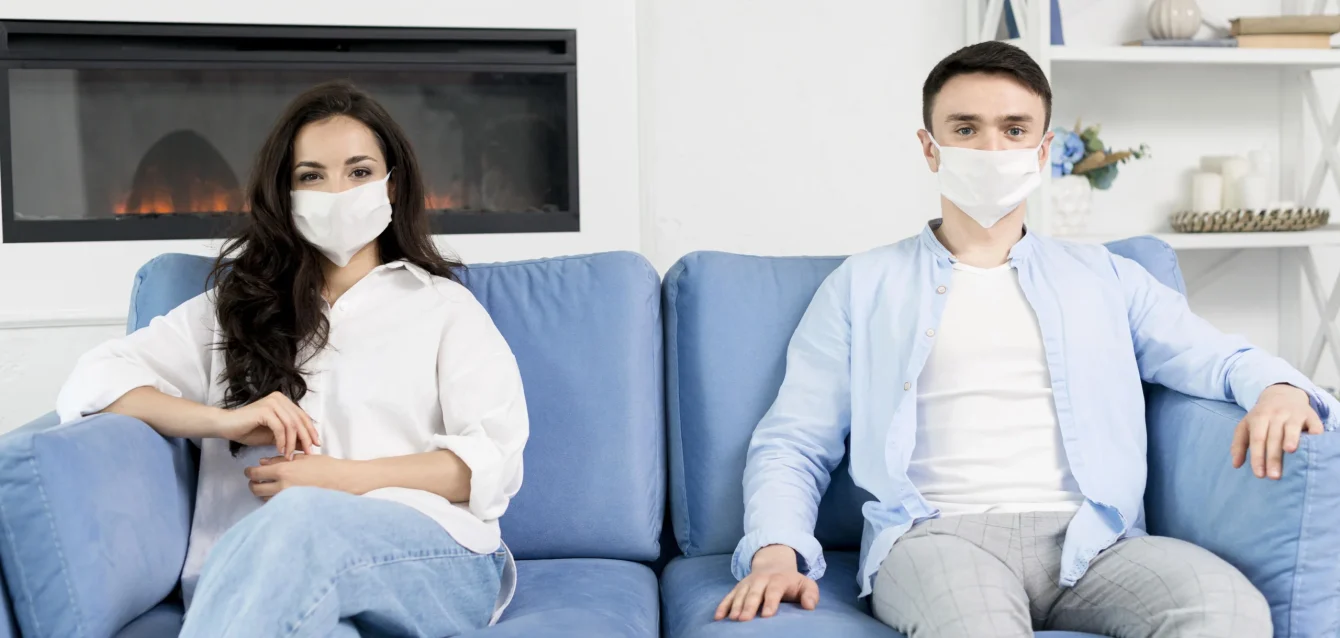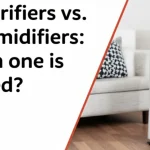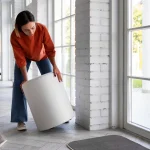
You know what? Most air purifier for viruses claim to filter and kill bacteria and viruses, including COVID-19. So, let’s see if that’s true or not.
In today’s world, where public health has taken the central stage, the air we breathe is more important than ever! The COVID-19 pandemic has significantly impacted global health. Over 1.5 million died due to respiratory complications, and over 50 million people were exposed to the virus. As people look for ways to improve their indoor environment, one question arises: Do air purifiers help with viruses and bacteria? The answer is yes! Let’s explore how these air purifiers offer protection against bacteria and viruses, and which medical-grade air purifiers are changing the game!
How Bacteria and Airborne Viruses Spread?
Bacteria and viruses are spread through airborne transmission. When the human body inhales bacteria, it causes bacterial infections, including strep throat, tuberculosis, and other illnesses. Some viral infections caused by bacterial inhalation are the common cold, flu, and chickenpox.
Humans are responsible for spreading diseases and viruses in their homes, workplaces, or other crowded spaces. When someone coughs or sneezes, mucus or water droplets filled with bacteria and viruses scatter in the air. These droplets have a 5-10 µm size and stay suspended in the air for hours. Therefore, these respiratory droplets spread infections. Thus, it’s crucial to clean the air and improve ventilation by evacuating airborne contaminants and improving indoor air quality.
In this regard, air purifiers for viruses are an excellent option for circulating fresh air and helping remove airborne contaminants.
The Role of Air Purifier For Viruses in Neutralizing Microbial Threats
Air purifiers for viruses are designed to remove contaminants from the air, and the most advanced models can significantly reduce the concentration of harmful bacteria and viruses. However, the purifier must include specific technologies to be effective.
The most critical components of an air purifier for viruses and bacteria are:
- HEPA Filters:
HEPA filters viruses up to 0.3 microns in size with 99.97% efficiency. These filters capture airborne particles. While thinking about the capability of HEPA filters to capture viruses, it’s important to note that particles smaller than 0.3 microns attach to large particles that are captured by HEPA filters.
A quality air purifier for viruses will utilize a true HEPA filter to ensure proper removal of these pathogens from indoor air.
- UV-C Light:
UV-C light kills microorganisms by destroying their RNA or DNA. The UV light penetrates the bacteria or virus’s cell wall and damages their nucleic acids. UV-C is particularly effective because it can kill or render inert a wide range of pathogens, including those that might escape the HEPA filter. In some UV air purifiers, the UV-C light is positioned after the HEPA stage to ensure that any microbes trapped on the filter surface are sterilized, which helps prevent bacterial buildup within the device.
- Activated Carbon:
It helps remove odors and VOCs, which can carry pathogens. These filters are highly porous carbon material that adsorbs VOCs and airborne chemicals. While activated carbon does not directly kill viruses or bacteria, it plays a supportive role by removing carrier particles and harmful gases that may support microbial survival. Some carbon filters are enhanced with antimicrobial coatings, such as silver ions or potassium permanganate, to add germ-inhibiting properties.
Explore How BigWater’s Air Purifiers Kill Bacteria and Viruses
Not all air purifier for viruses work the same way. Among the many companies offering air purifiers, BigWater.io is known to provide air purifiers that clean the air quality efficiently. With air purification performance that rivals industrial models and a mission that supports global wellness, BigWater.io is a leader in the next generation of air purifiers for viruses.
Jupiter Air Purifier
A popular air purifier for bacteria and viruses is the BigWater Jupiter Air Purifier, which captures 99.9% of the bacteria and viruses as small as 0.3 microns. This UV air purifier cleans up to 2 m³ of air daily.
Features
- This air purifier has a 4-stage filtration system. It includes UV light, an activated carbon filter, and a HEPA filter that protects against allergens, bacteria, and pollutants.
- It has built-in sensor technology that monitors indoor air quality daily and removes contaminants by adjusting its fan. Therefore, it ensures energy efficiency and optimal performance.
- This air purifier is compact and quiet. Its slim design makes it easy to place in offices, living rooms, and bedrooms.
Mars Air Purifier
The Mass Air Purifier is a popular choice that effectively removes bacteria, viruses, and other air contaminants. This air purifier effectively removes airborne particles that are even small up to 0.3 microns. This air purifier for viruses also clears up to 6 million of air daily.
Features
- Mar air purifier for viruses has an advanced filtration process that includes four steps: activated carbon filter, UV light, HEPA filter, and pre-filter. These stages remove allergens, bacteria, and other pollutants from the air.
- It has a smart sensor technology that adjusts the fan filtering speed according to the air contaminants in the environment.
- This purifier operates quietly and has a sleek, slim design suitable for offices, living rooms, and bedrooms.
Where Is an Air Purifier for Viruses Most Effective?
Air purifiers are essential in any setting where people gather and share air. Here are just a few examples:
- Homes – Especially in rooms occupied by children, elderly individuals, or anyone with a compromised immune system.
- Offices – Where air recirculates through central HVAC systems, increasing the spread of airborne germs.
- Healthcare Facilities – Where sterility is critical, and the risk of infection is high.
- Restaurants and Gyms – These are where people congregate, breathe heavily, and share limited air space.
Whether for personal health or public safety, having an air purifier with HEPA filters, viruses, and UV technologies significantly reduces exposure to bacteria and viruses.
Final Thoughts: Do Air Purifiers Help with Bacteria and Viruses?
In conclusion, air purifiers help with bacteria and viruses, especially HEPA filters, UV-C light, and advanced sensor technology. Their ability to trap and neutralize airborne pathogens makes them essential to any healthy indoor environment. Choosing a trusted brand like BigWater.io provides personal protection and supports broader health initiatives through its clean water mission and reward ecosystem. Whether you’re outfitting a home, an office, or a public space, investing in a UV air purifier for viruses with medical-grade components is one of the smartest steps to safeguard your well-being.





